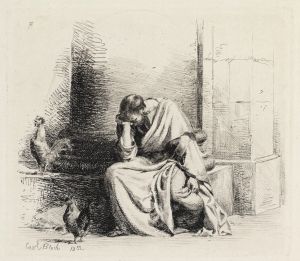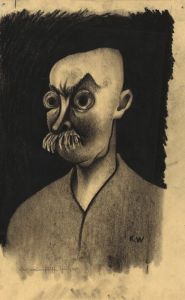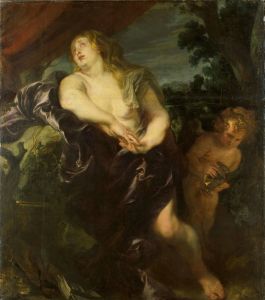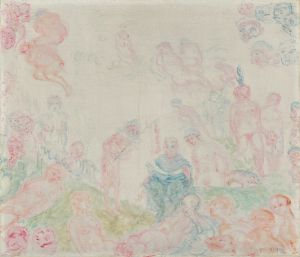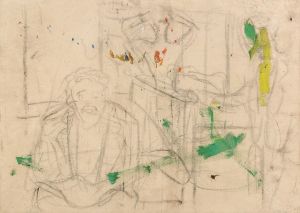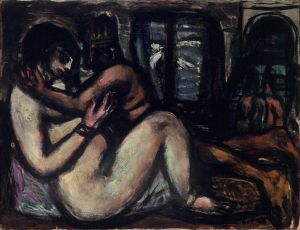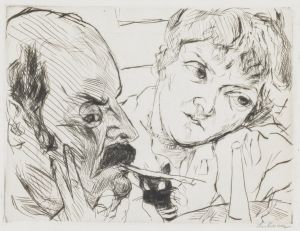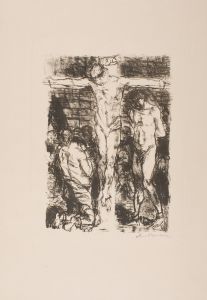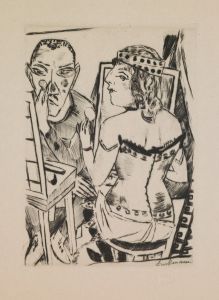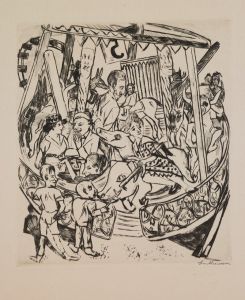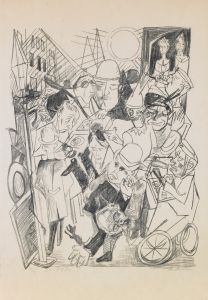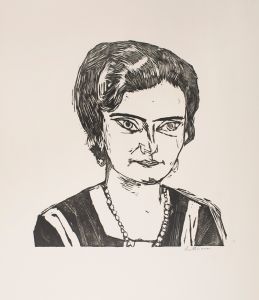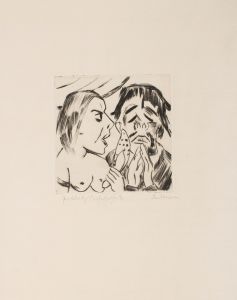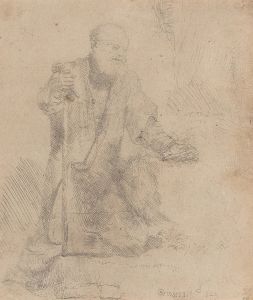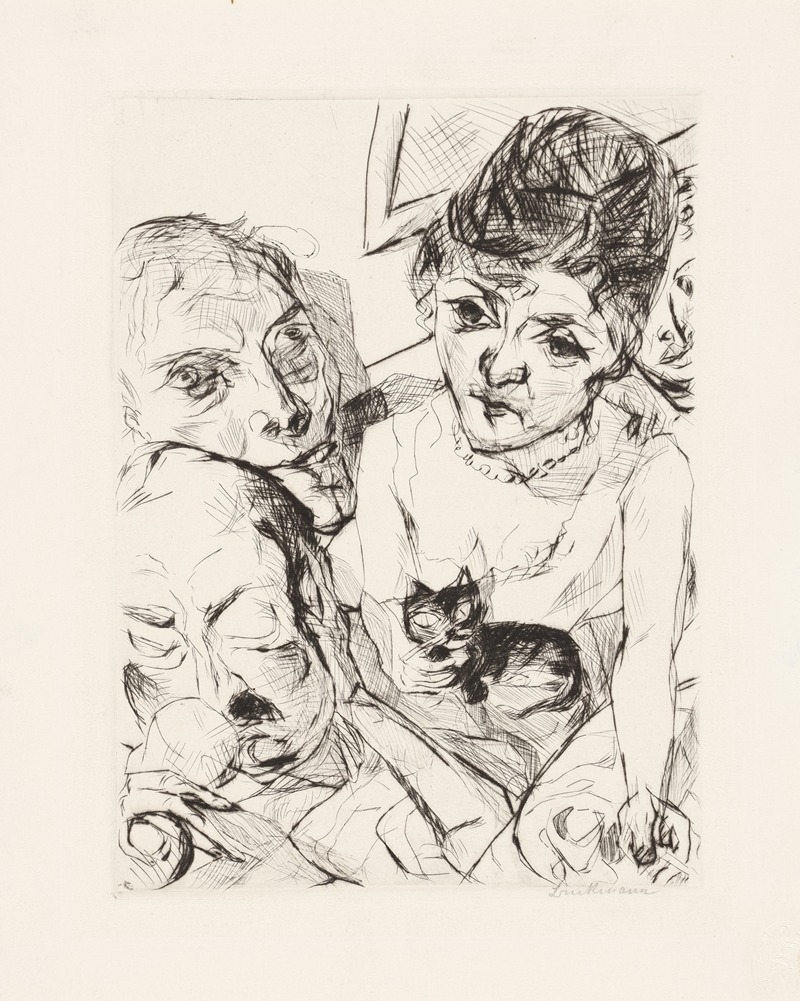
Evening
A hand-painted replica of Max Beckmann’s masterpiece Evening, meticulously crafted by professional artists to capture the true essence of the original. Each piece is created with museum-quality canvas and rare mineral pigments, carefully painted by experienced artists with delicate brushstrokes and rich, layered colors to perfectly recreate the texture of the original artwork. Unlike machine-printed reproductions, this hand-painted version brings the painting to life, infused with the artist’s emotions and skill in every stroke. Whether for personal collection or home decoration, it instantly elevates the artistic atmosphere of any space.
"Evening" is a painting by the German artist Max Beckmann, created in 1946. Beckmann, a prominent figure in the New Objectivity movement, is known for his expressive and often somber works that reflect the tumultuous events of the early 20th century. "Evening" is one of his later works, produced after he had fled Nazi Germany and settled in the United States.
The painting features a complex composition typical of Beckmann's mature style, characterized by bold lines, vivid colors, and a sense of psychological depth. It depicts a group of figures in an interior setting, engaged in various activities. The scene is imbued with a sense of tension and ambiguity, common in Beckmann's work, which often explores themes of existential angst and the human condition.
Beckmann's use of space in "Evening" is notable for its compressed and claustrophobic feel, which enhances the emotional intensity of the scene. The figures are rendered in a stylized manner, with exaggerated features and dramatic poses that convey a sense of inner turmoil. The artist's palette is dominated by dark, rich tones, with occasional bursts of brighter colors that draw the viewer's eye to specific elements within the composition.
"Evening" reflects Beckmann's continued exploration of the human psyche and his response to the social and political upheavals of his time. The painting can be seen as a meditation on the themes of isolation, alienation, and the search for meaning in a world marked by conflict and uncertainty. Beckmann's personal experiences, including his exile from Germany and the impact of World War II, undoubtedly influenced the mood and content of the work.
Max Beckmann was born in Leipzig, Germany, in 1884 and studied at the Weimar Academy of Art. He initially gained recognition for his work in the early 20th century, but his career was disrupted by the rise of the Nazi regime, which labeled his art as "degenerate." In 1937, Beckmann fled to Amsterdam, and in 1947, he moved to the United States, where he continued to paint and teach until his death in 1950.
"Evening" is part of Beckmann's broader oeuvre, which includes paintings, drawings, and prints that often feature complex, multi-figure compositions and a distinctive, expressive style. His work has been the subject of numerous exhibitions and is held in major museum collections around the world, including the Museum of Modern Art in New York, the Tate Gallery in London, and the Städel Museum in Frankfurt.
In summary, "Evening" by Max Beckmann is a significant work that exemplifies the artist's mature style and thematic concerns. It captures the emotional and psychological complexity of the human experience, set against the backdrop of a world in turmoil. Beckmann's masterful use of composition, color, and form creates a powerful and evocative image that continues to resonate with viewers today.





